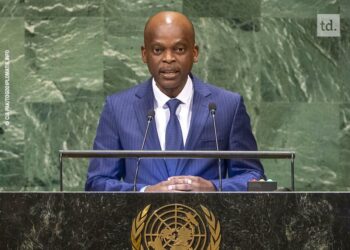A Canadian police officer has testified about his arrest of Huawei executive Meng Wanzhou on a US extradition warrant, revealing that Washington had requested that data on her phone and laptop be secured so that it could not be “erased remotely.”
Royal Canadian mounted police constable Winston Yep – the first witness to testify in the extradition case – arrested the Chinese telecom giant’s chief financial officer in December 2018 during a stopover in Vancouver.
She is charged with bank fraud related to violations of US sanctions against Iran.
Yep told the British Columbia supreme court he’d received a request to detain Meng the day before her flight from Hong Kong and it had been decided in advance that she would be arrested after disembarking.
“We talked about going on the plane … and didn’t think it was a good idea because of officer safety and public safety,” Yep said.
He recalled that US authorities had specifically requested their Canadian counterparts to seize her electronic devices and place them in a “Faraday bag” designed to block any wireless transmissions in order to prevent “data from being erased remotely”. He added that the request was “part of the process” and presented no cause for concern.
The constable testified that he “didn’t know too much about” Meng or Huawei prior to her arrival in Canada. Because she was a “high-profile person,” he added, his supervisor showed up at the airport to make sure nothing went wrong.
Meng’s lawyers argued a very serious breach of process occurred during her arrest.
In a case that has diplomatic implications for Canada’s relations with both the US and China, her fellow company executives claimed the case was really part of a US trade war in which she had become a pawn.
Alykhan Velshi, vice president, corporate affairs, of Huawei Canada told the Guardian: “Had she not been an executive at a prominent Chinese company, we do not believe she would ever have been arrested”.
He added: “There were very serious breaches of Meng Wanzhou’s constitutional rights under Canada’s Charter of Rights and Freedoms.
“She was detained for three hours without explanation, without access to a lawyer, and interrogated in a language that is not her first language. She was not told why she was being arrested,” Velshi said.
“There was a deliberate and premeditated effort by Canadian officials to interrogate her without counsel present in order to obtain information for the US administration.”
Velshi claimed Canadian officials unlawfully seized, opened, searched, viewed, and shared contents from her personal electronic devices, which Meng’s team says, constitute a breach of process.
In effect, Meng’s supporters claim the FBI wanted the Canadian Border Service Agency to use the agency’s extraordinary powers to question Meng without a lawyer. It is alleged that the Canadians then handed information, including details extracted from her SIM card and computer to the FBI to help the inquiry.
In court filings, Meng’s lawyers alleged that Canadian and US authorities “conspired together to delay Meng’s arrest and tried to obtain information that would help US authorities prosecute her on fraud charges.”
If proven, the allegations could result in a stay of the extradition proceedings.
Canadian justice department lawyers have countered that Meng’s rights were never violated nor was there any conspiracy with the US to deprive her of her rights.
Canada Border Services Agency officers will also testify this week about what transpired at the Vancouver airport.
Meng is the daughter of Ren Zhengfei, chief executive officer and founder of China’s leading technology giant increasingly targeted worldwide by the US as an arm of the Chinese communist party.
She is facing fraud charges in the United States but denies the allegations that she misrepresented the company’s relationship with Skycom Tech, putting HSBC at risk of violating US sanctions in Iran.
The current proceedings are largely a weeding out process seeking to determine what issues can be put before a judge at fuller extradition proceedings next year.
Most lawyers say the case could take many years to resolve, but it is clearly Huawei’s intention to suggest that Canadian police and government have become, wittingly or not, over eager accomplices in a politically motivated attempt by the US to intimidate Huawei.
The issue has become more fraught due to the arrest of two Canadians by the Chinese government a fortnight after she was seized.
Do you have a story in your community or an opinion to share with us: Email us at editorial@watchdoguganda.com












